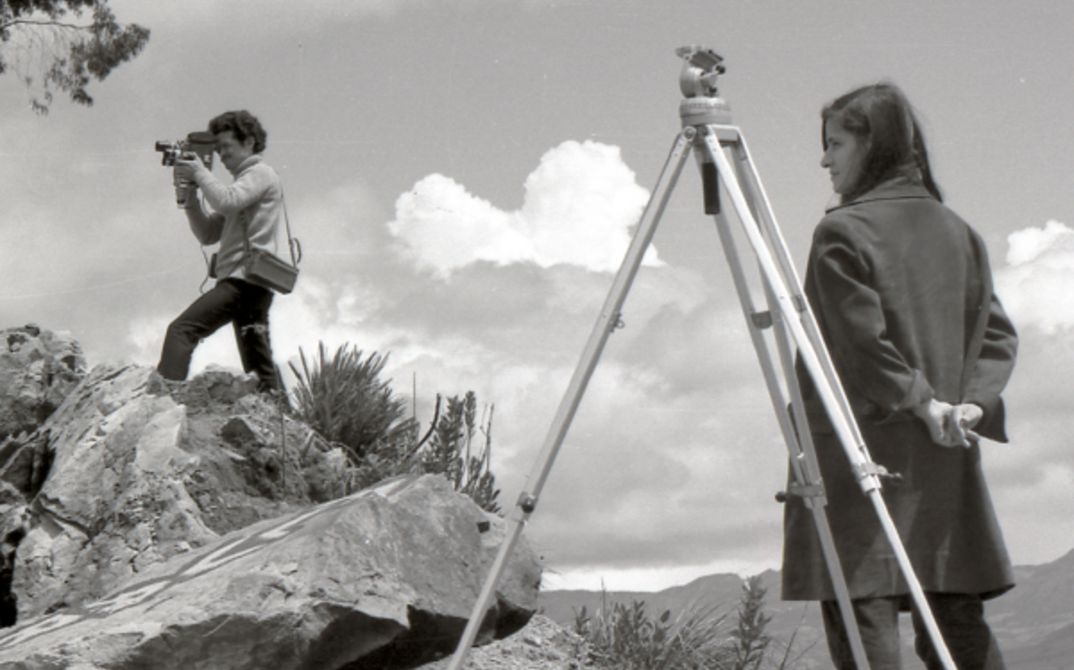Working as a documentary filmmaker with photographer Jorge Silva was hugely creative. Jorge Silva came from a very poor family and only had three years of primary education, but he was an autodidact and learnt about film via the cinema clubs of the time, as in the 60s there weren’t yet any film schools in Colombia. He was certainly knowledgably about the country’s marginalised and excluded community though. I returned from Paris in 1965 after having had the privilege of studying under the great master Jean Rouch, who set us up with a very effective team work with. Jorge Silva also had a special talent for photography and we thus managed to work together for 20 years, producing such cinematographic works as Nuestra voz de Tierra, memoria y futuro, Chircales, Planas, testimonio de un etnocidio, which were about the genocide carried out on an indigenous community, Campesinos and La voz de los sobrevivientes, which we about the agrarian movement, and finally Amor, mujeres y flores.
Our son Lucas Silva inherited our vocation and has equally dedicated himself to documentary and Afro-music, he’s currently a documentary filmmaker and has made various films about the Afro-Colombian communities of Colombia. His sister Milena Silva is a violinist, which means that the whole family have dedicated their lives to art. Jorge and I formed part of the new political cinema of Latin America, which was hugely important in the 60s.
Marta Rodríguez is a documentary filmmaker and anthropologist. Her entire oeuvre was co-directed with Jorge Silva, who died in 1987. Her film Nuestra voz de tierra, memoria y futuro was shown at the Forum in 1982 and is being screened again this year as a digital restoration.
